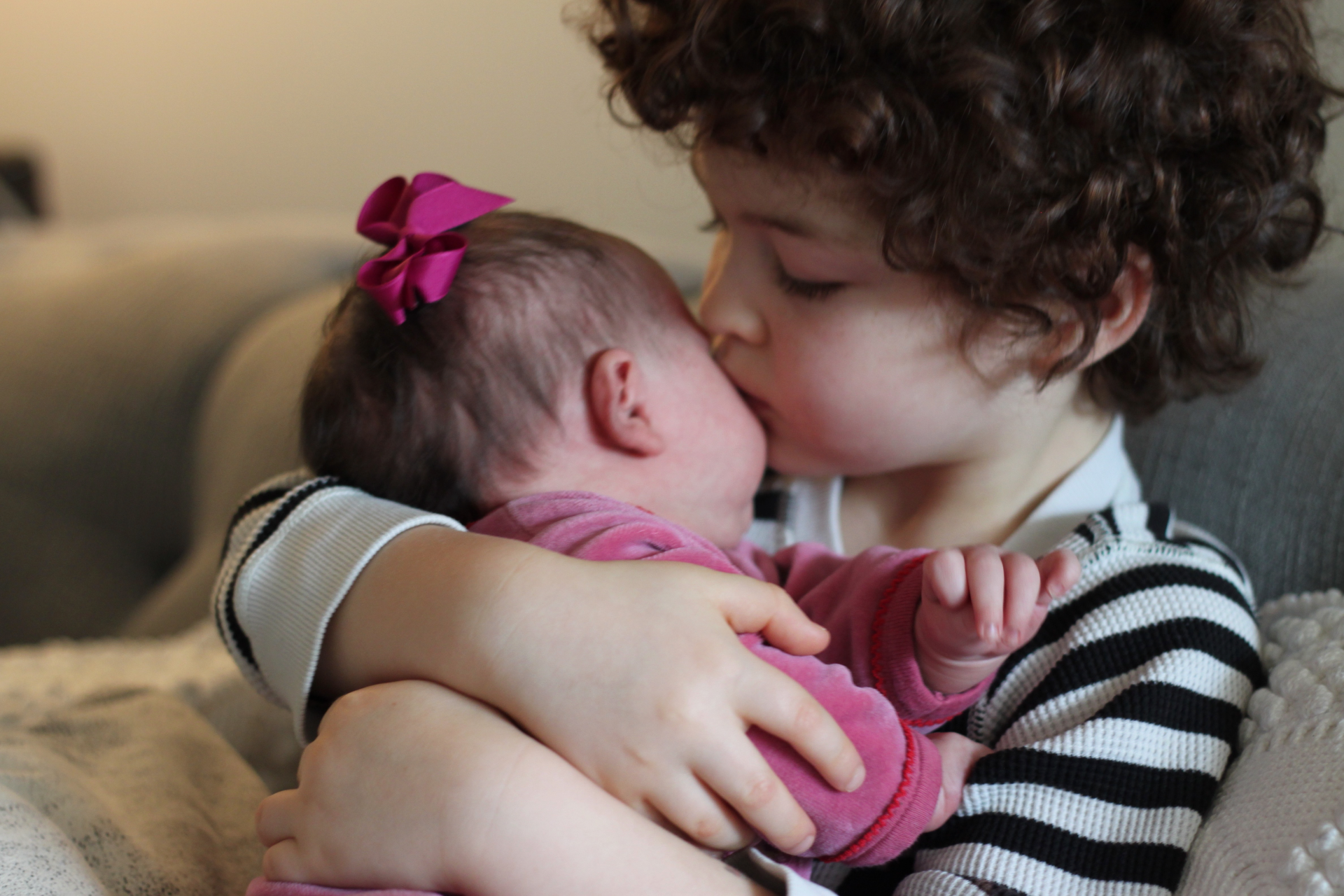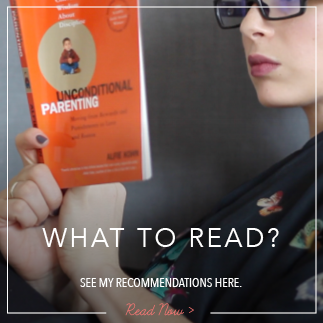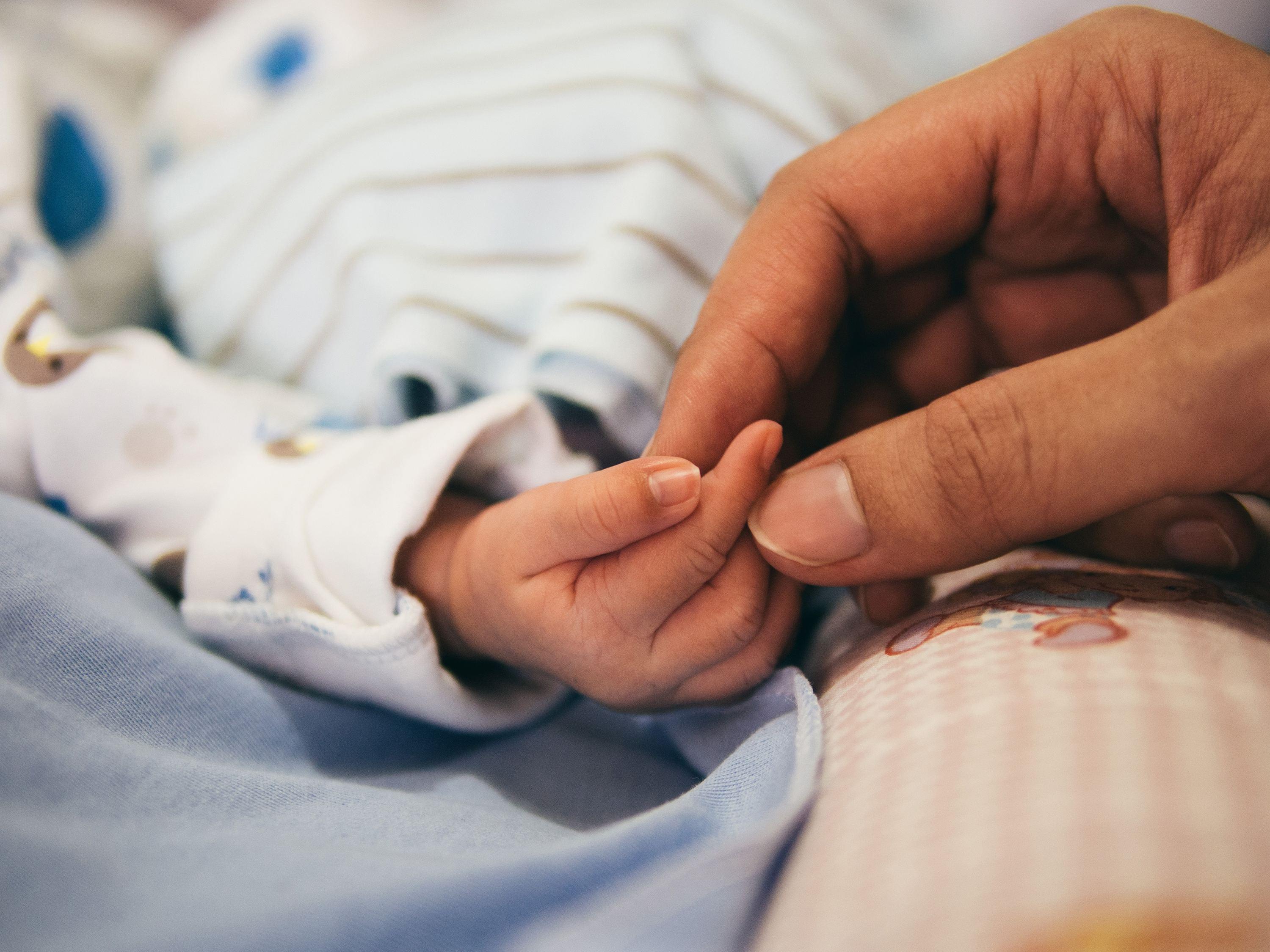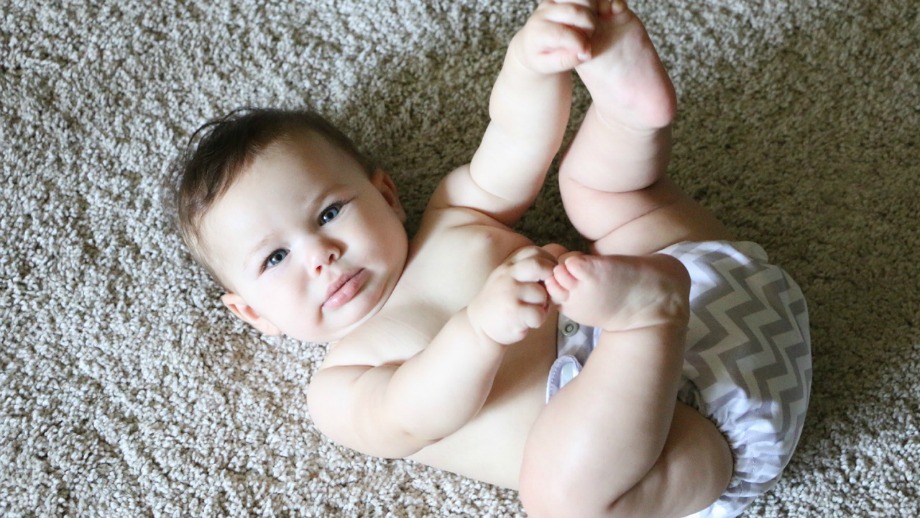How to Prepare Your Child for a New Sibling
Congratulations! Expecting another? That’s wonderful. As you probably know, the arrival of a new baby is a notoriously challenging transition for an older sibling. But – do not fear – there are many ways to ease into this transition and, speaking from experience, it doesn’t have to be the stressful rage of jealousy our culture sometimes makes it out to be.
- Consider the timing
When you tell your child about your pregnancy is a meaningful decision because for young children (and for most adults!) it’s hard to wait 9 long months before this alleged “baby” appears. On the other hand, you don’t want your child to hear it in passing, from someone else, or to sense the change in their parents without fully comprehending the reason why. They might conclude that something is wrong and feel anxious. Just be wary that normally, when you tell your verbal child you’re expecting, you may well be telling their teachers, friends and neighbors too. Secrets aren’t children’s forte, usually, so make sure you’re ready to share. - Help to visualize having a baby
It’s such an abstract concept for most of us, just telling your child simply isn’t enough. Use visual aids such as books (we like this one) and videos, or even better, real live babies! If your friends or family have a baby, make a point of introducing your child to them, and letting them get a feel for what a baby is like, how they’re held and the rules (such as hand washing) of caring for a baby. Another wonderful way to prepare is to play with a baby doll… bathing, diapering, nursing, feeding, being quiet and gentle etc. So many new behaviors are expected when a baby arrives. It will really help your child to get to practice these in a fun, non-stressful way. - Prepare your child for your birth situation
Whether you’re planning to birth at home or in the hospital , consider who will be caring for your child during that time, and get them very comfortable with that person ahead of time. Try to set up extra time with the babysitter or family member so that they’re used to having them around. It’s worth preparing the adult for your child’s bedtime routine, their favorite foods and activities too, so that they both feel confident and comfortable with each other. Play with little dolls and enact the situation where your labor starts and you are saying goodbye… who is coming to care for your child? Where might they be? (At home? in the caregivers house?) What will they be doing while you’re gone? (Going to the park? Playing with play-dough?) It might still be stressful for both you and your child when the time comes, but at lease the situation will be familiar and predictable. - Create a buffer of stability in the weeks before and after the birth
For your entire family, a new baby is a huge transition, so it’s well worth limiting any other transitions or changes before and after the birth. For young children a new bed, a different caregiver taking them to preschool, or potty learning are all really big transitions to handle. If they have to handle a big transition, in addition to accepting a new baby into the family, we’re piling on too much pressure. If possible, create very slow, boring, predictable days for weeks (if not months) before the birth, and after it. Most children thrive on stability and enjoy a simple routine that they can rely on. If you need to stop nursing, change sleeping arrangements, or rearrange furniture in the house… consider making those changes well in advance, or waiting for everything to settle after the birth. - Don’t push your child into the role of “Older Sibling”
Your child may not be ready to be a big brother or sister just yet. They may well want to hold on to being your baby, which can be difficult seeing as now you have another baby on the way. But it is not their job to “help you” with the baby, or to grow up faster because you need them to right now. As much as is possible, try to allow them to grow into that role organically, as they are ready, and because they chose it. - Accept and embrace negative feelings towards the baby
It may seem counter intuitive, but inviting in big, bad feelings of jealousy, anger and even hatred often helps to dissolve those feelings. When we oppress them (“Of course you love the baby!” or “But you love being a big sister”) our children receive the message that there is something wrong with them, and that their feelings are unacceptable to us. The problem with bottling feelings up is that rather than being expressed consciously, they are then expressed subconsciously… through externalizing anger and violence, or internalized feelings of inadequacy. Much better to allow these feelings out in the open with affirming and validating responses such as: “Yes, it can be hard to be a big brother, can’t it? Sometimes do you wish it was just you and me again?” or “It’s frustrating that every time you want to play I need to nurse the baby, isn’t it?”. Remember you do not have to solve this problem or make it go away. Just empathizing that it is, indeed, difficult or even infuriating, is enough. - Avoid labels on “big brothers” and “big sisters”
Try to let go of preconceived notions about how older brothers and sisters “should” behave. Your child will have their own unique, organic and natural reaction to their sibling, and it will probably be as complex and varied and varied as their personality itself. If you push them into specific roles and reactions with sentences like “Big brothers walk by themselves” or “Big sisters are helpers” they may well resist those roles (after all, they don’t sound like much fun). Instead, remain open and receptive to your child’s true feelings about their new role. They might love and embrace it, and they may not. And it may change from hour to hour. And that’s ok. - Fill your child’s bucket up before the birth
In our culture we’re sometimes taught to prepare our child for something difficult by inflicting that difficulty on them now. Instead, consider the idea that you don’t prepare for a famine by starving, but by filling up. Rather than preparing them for less quality time with you by depriving them of time with you now, fill their buckets up with as much connection with you as possible. That way, they come to the birth satiated and full with your love, which should hopefully see them through the major transition that’s coming. - Expect regressions
It’s entirely normal for your child to regress in their potty learning, their language, or their behavior. These are ways of them asking: “Am I still your baby?” and the answer should be a resounding: “Yes, you are still my baby.” - Prioritize Self Care
I hope this doesn’t sound like some cruel joke. As I write this, I am 9 months pregnant, working full time, and I have a 2 and 4 year old at home. I promise, I understand how challenging it is to brush your teeth once a day, let alone nap, get a massage, or enjoy a cup of tea (while it’s still hot). Still, prioritizing self care isn’t a luxury. It’s an absolute necessity. So getting a babysitter, getting more help around the house, putting on more movies for your children… whatever it takes to get yourself to a place where YOUR bucket is full is absolutely vital with an upcoming birth. If your resources are depleted, and you’re feeling needy and run down, you can absolutely expect a snowball effect. We simply cannot give what we do not have.
I also strongly recommend reading Siblings Without Rivalry and Peaceful Parent Happy Siblings in preparation for raising siblings.














There are many fun ways to introduce the idea of a new baby to your child. One of the other moms on the WeeCare.co Community Page suggested reading books, they specifically bought “You’re a Big Brother Now!” They also “got a gift for him from his sister when he met her.” We also did this, and in my experience, it makes the older sibling so proud and excited to be involved. For the full list of comments, here’s the link: https://weecare.co/post/how-do-i-tell-my-3-year-old-im-pregnant-again-58.